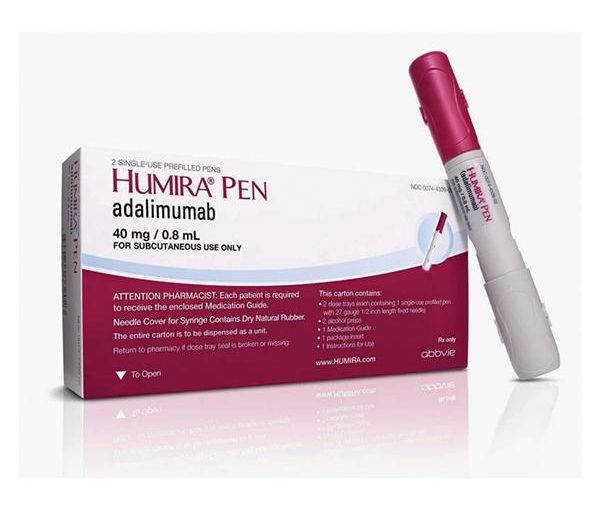More than 70 percent of U.S. spending on top-selling “partial orphan drugs”—drugs for rare diseases that also are approved to treat common diseases—is for non-orphan indications, a study in latest edition of Health Affairs concludes.
Makers of partial orphan drugs could be earning substantial sums, in part, because 340B drug discounts on orphan drugs are not owed on sales to rural and free-standing cancer hospitals, the study by Kao-Ping Chua and Lauren E. Kimmel of the University of Michigan and Rena Conti of Boston University notes. Policymakers who “wish to decrease the rewards for repurposing a common disease drug to treat rare disease” might consider limiting the 340B discount exemption “to instances in which the drug is used for the rare disease for which it has orphan drug designation,” the researchers said. U.S. Reps. Peter Welch (D-Vt.) and David McKinley (R-W.Va.) have introduced such legislation, they pointed out.
According to the study, 25 percent of U.S. prescription drug spending in 2017 was for orphan drugs, and about one-fifth of orphan drugs are approved for non-orphan indications to treat common diseases.
“Many partial orphan drugs have blockbuster sales,” the study notes. “In 2018 partial orphan drugs accounted for five of the six top-selling drugs in the U.S.,” it says, including the top-selling drug, Humira, with $13.7 billion in sales.
Chua, Kimmel, and Conti said they focused on how much is spent on the top 15 partial orphan drugs, and for what the drugs are prescribed, “because the justifiability of their orphan drug benefits has been the subject of the most debate among policy makers.” The drugs studied are:
- Humira
- Remicade
- Enbrel
- Neulasta
- Herceptin
- Rituxan
- Avastin
- Opdivo
- Keytruda
- Gamunex-C
- Gammagard Liquid
- Botox
- Humatrope
- Norditropin
- Xgeva
The study used national commercial claims data to estimate the proportion of spending in the U.S. on these 15 drugs that was assigned to orphan indications in 2018. Total spending on the group was $3.84 billion. Of this spending, 21.4 percent was assigned to orphan indications, 70.7 percent to non-orphan indications, and 7.9 percent to neither orphan nor non-orphan indications (for example, off-label use). The proportion of spending assigned to orphan indications ranged from 0.6 percent (Neulasta) to 74.2 percent (Norditropin). For 10 of the 15 drugs, the proportion assigned to orphan indications was below 50 percent (Neulasta, 0.6%; Enbrel, 1.4%; Herceptin, 2.4%; Gammagard Liquid, 4.0%; Xgeva, 6.1%; Humira, 8.4%; Botox, 14.5%; Keytruda, 25.3%; Gamunex-C, 32.2%; Avastin, 44.7%).
Seven of the 15 received orphan designations before being approved for common diseases: Remicade, Rituxan, Opdivo, Keytruda, Botox, Humatrope, and Norditropin. Of these, half of spending was for orphan indications, and almost 40 percent was for nonorphan indications.
Orphan approval is typically easier to obtain than non-orphan approval, and launch prices for rare-disease drugs often are high. Manufacturers have an incentive to pursue orphan approval first, “thus obtaining lucrative orphan drug benefits such as tax credits while leveraging the lower bar for approval, and then subsequently market the drug primarily for common diseases,” the study said.
“Our findings provide some support to policy makers’ concerns regarding the costs of orphan drug benefits for partial orphan drugs, particularly those initially approved for rare diseases,” the study concluded. “Yet reducing these benefits entails trade-offs. To inform assessments of these trade-offs, future studies should evaluate whether the benefits of the orphan uses of partial orphan drugs justify the potentially substantial costs of granting these drugs orphan status.”
Drug manufacturers and other opposed to expanded use of the program 340B, particularly by hospitals, have cited some of Boston University researcher Conti’s past studies to support their positions.
For example, in an October 2014 Health Affairs research article, Conti and Peter Bach of the Center for Health Policy and Outcomes at Memorial Sloan Kettering Cancer Center “examined whether the [340B] program is expanding in ways that could maximize hospitals’ ability to generate profits from the 340B drug discounts.” They said their findings “support the criticism that the 340B program is being converted from one that serves vulnerable patient populations to one that enriches hospitals and their affiliated clinics.”
Other 340B related studies that Conti has been involved in, however, lend support to the provider point of view on 340B.
For example, in a November 2014 Health Affairs research article, Conti and researchers at the University of Chicago and Walgreens examined 2012 data from Walgreens to better understand what sorts of medications were dispensed by 340B contract pharmacies, by what types of covered entities, and to which types of patients. They found that “340B contract pharmacies dispense medications used to treat Americans’ chronic disease burden and disproportionately dispense medications used by key vulnerable populations targeted by the program.”


